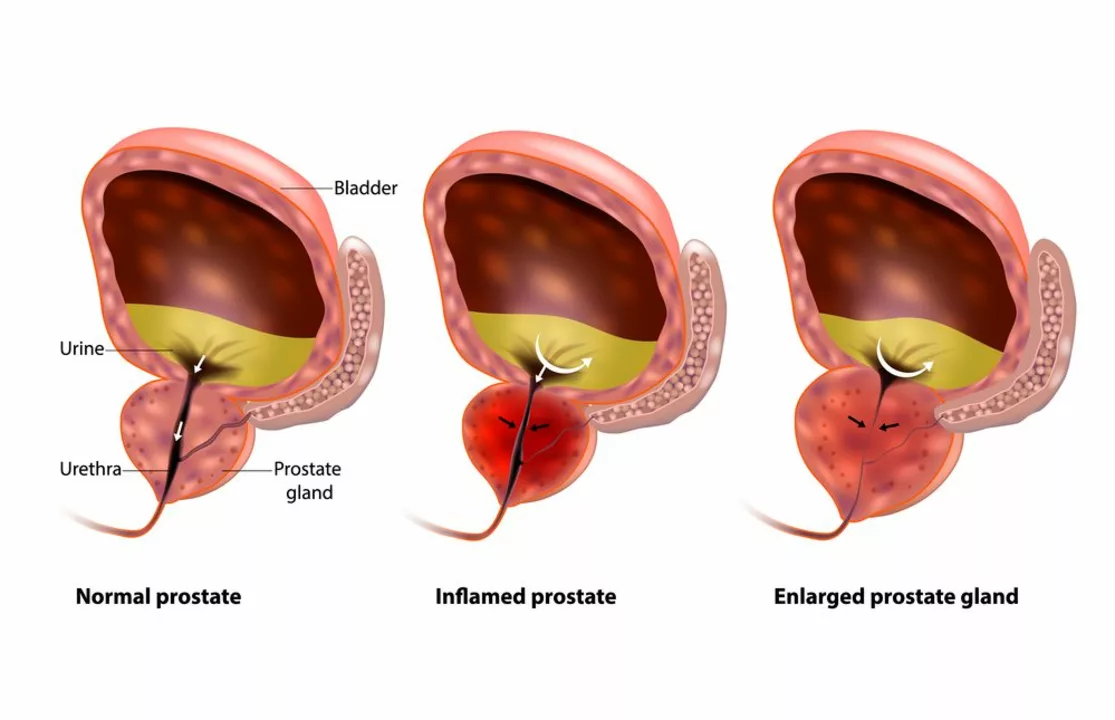 6
May,2023
6
May,2023
Understanding BPH and Its Impact on Daily Life
Before diving into the ways to manage BPH-related pain with Alfuzosin, it's essential to understand what BPH is and how it affects daily life. Benign Prostatic Hyperplasia (BPH) is a common condition in older men, characterized by the enlargement of the prostate gland. This enlargement can cause various urinary symptoms, such as frequent urination, weak urine stream, and difficulty starting and stopping urination. In some cases, BPH can also cause pain and discomfort.
In this article, I will share my experience and knowledge on managing BPH-related pain with the help of Alfuzosin, a medication commonly prescribed to treat this condition. So, let's explore the different aspects of Alfuzosin and learn how it can help alleviate BPH-related pain.
Getting to Know Alfuzosin: The Basics
Alfuzosin is a medication that belongs to a class of drugs called alpha-blockers. It works by relaxing the muscles in the prostate and bladder neck, allowing for easier and less painful urination. It is commonly prescribed to treat the symptoms of BPH and is usually taken once daily.
As with any medication, it's crucial to understand the basics of how Alfuzosin works and follow your doctor's recommendations for its use. In the next sections, I will discuss my personal experience with Alfuzosin and how it has helped me manage my BPH-related pain.
Starting Alfuzosin: My Journey
When I was first diagnosed with BPH, I experienced significant discomfort and pain while urinating. After discussing my symptoms with my doctor, they prescribed Alfuzosin as a treatment option to help alleviate my BPH-related pain.
As I began taking Alfuzosin, I noticed a gradual improvement in my urinary symptoms. The pain and discomfort I previously experienced during urination became more manageable, and I felt a significant improvement in my overall quality of life. In the following sections, I will share some tips and strategies that have helped me make the most of my Alfuzosin treatment plan.
Sticking to a Schedule: Consistency is Key
One of the most important aspects of managing BPH-related pain with Alfuzosin is consistency. Taking the medication at the same time every day ensures that the drug maintains a consistent level in your system, providing maximum relief from BPH symptoms.
I found it helpful to set a daily reminder on my phone to take my Alfuzosin dose. Additionally, I tried to associate taking the medication with a specific daily routine, such as having my morning coffee or brushing my teeth before bed. This helped me remember to take my Alfuzosin consistently and ultimately improved my BPH-related pain management.
Monitoring Side Effects: Staying Vigilant
As with any medication, there are potential side effects associated with taking Alfuzosin. Some common side effects include dizziness, headache, and fatigue. It's essential to monitor how your body reacts to the medication and report any concerning side effects to your doctor.
In my experience, I experienced some mild dizziness during the first few weeks of taking Alfuzosin. However, this side effect eventually subsided as my body adjusted to the medication. It's crucial to remain vigilant and open with your healthcare provider about any side effects you may experience while taking Alfuzosin, as they can help determine the best course of action for your specific situation.
Combining Lifestyle Changes with Alfuzosin
While Alfuzosin can be an effective tool in managing BPH-related pain, it's important to remember that lifestyle changes can also play a significant role in improving your symptoms. Some helpful lifestyle changes include maintaining a healthy diet, staying physically active, and reducing your intake of caffeine and alcohol.
Personally, I found that combining Alfuzosin with these lifestyle changes led to the best results in managing my BPH-related pain. By making a conscious effort to improve my overall health, I was able to enhance the effectiveness of my Alfuzosin treatment plan and further improve my quality of life.
Regular Check-ups: Monitoring Your Progress
Last but not least, it's crucial to schedule regular check-ups with your doctor to monitor your progress while taking Alfuzosin. These check-ups allow your healthcare provider to assess the effectiveness of your treatment plan and make any necessary adjustments.
In my experience, regular check-ups have been essential in ensuring that my Alfuzosin treatment plan is working effectively to manage my BPH-related pain. By maintaining open communication with my doctor and staying proactive in monitoring my progress, I've been able to successfully manage my BPH-related pain with the help of Alfuzosin.


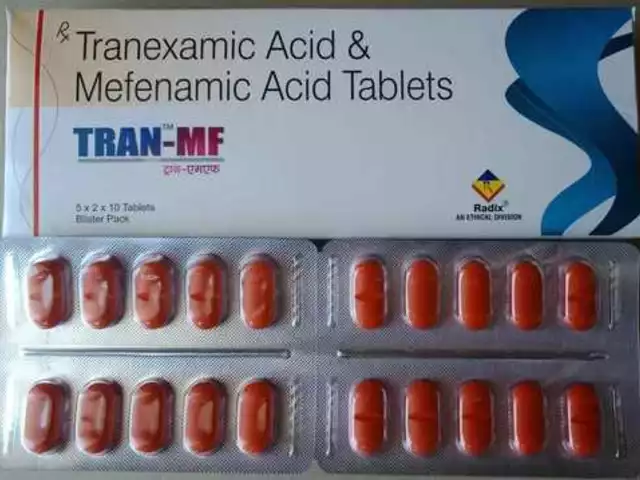
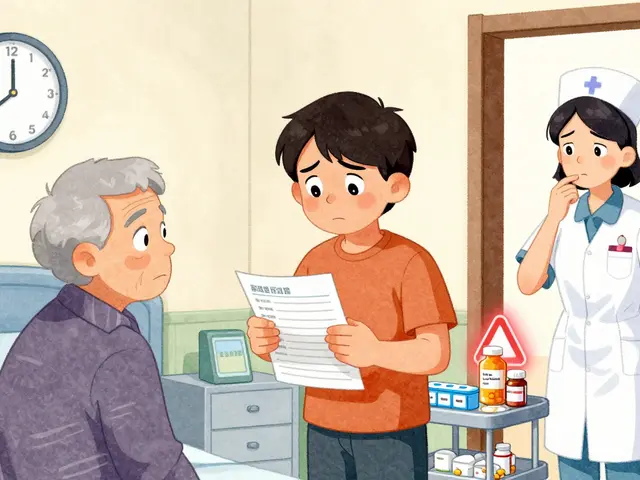
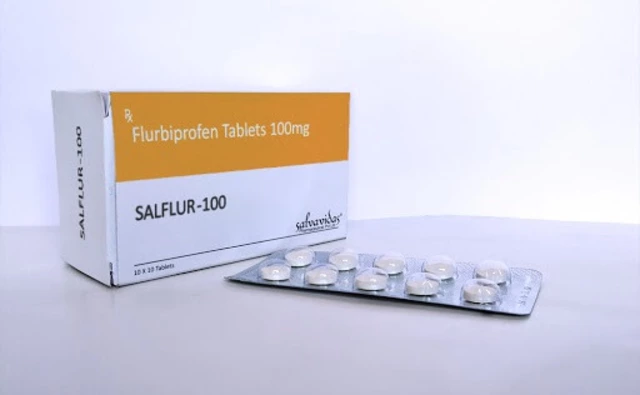
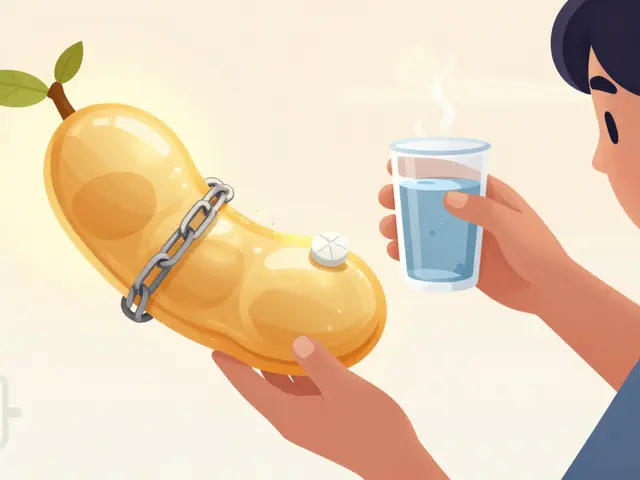
Thx for sharin, this helped me big time.
Oh great another guide about prostate pills. Because we definitely needed more of those. Your personal story is as original as the next guy’s. The way you break down the drug is… well, it’s something. I’m sure the average reader will be enlightened. The mention of coffee reminders is… groundbreaking. Consistency is key they say, but you really had to tell us that? The side‑effects list reads like a bingo card. Dizziness, headache, fatigue – surprise! The advice to talk to a doctor is revolutionary. I love the part about diet changes, truly avant‑garde. Your tone is so comforting, like a warm blanket. The article feels like a bedtime story for men in their 60s. I’m absolutely riveted. Thanks for the masterclass.
Man, I felt your pain when I first got the diagnosis – the panic, the constant trips to the bathroom, the dread of every night break. Then I stumbled on Alfuzosin and it was like a lightbulb exploded inside my bladder, giving me hope and relief in one glorious dose! I’ve been shouting from the rooftops about how taking it at the same time every morning changed the game for me. My doctor nodded, I complied, and now I can enjoy a full night of sleep without the dreaded drizzle. Trust me, this isn’t just a pill, it’s a ticket back to real living.
Yo dude, that story was lit man… i totally get the vibe. alfuozin is like a superhero in a tiny pill, ya know? i even call it my “pee‑guy” when i’m feelin’ low. just don’t forget the coffee tip – forget it and u’re back to the grind.
The pharmacodynamics of alfuzosin involve selective antagonism of alpha‑1A adrenergic receptors, which reduces prostatic smooth‑muscle tone, thereby improving urinary flow. Clinical trials have demonstrated statistically significant reductions in International Prostate Symptom Score (IPSS) after four weeks of therapy. It is essential, however, to monitor for orthostatic hypotension, particularly in patients concomitantly using antihypertensives. Additionally, dosage adjustments may be necessary in hepatic impairment. Overall, adherence to prescribing guidelines optimizes therapeutic outcomes.
Wow, look at you spitting out the fancy science like you’re reading from a textbook! I mean, who even knows what an alpha‑1A receptor is? It sounds like a secret agent code name for a tiny muscle‑bouncer. And then you drop “statistically significant” like it’s some kind of magic spell. But guess what? Real people just want to pee without a drama show. I tried that pill and felt like a superhero for a day, then the world turned upside down when I got the dizzy spell. It’s like the universe saying “you asked for power, now face the consequences”. The guidelines? Yeah, they’re great until you’re standing in the bathroom waiting for a drip. Anyway, thanks for the lecture, professor. Maybe next time add a sprinkle of humor. Or at least a meme. My bladder will thank you either way.
Honestly, reading this felt like a wellness retreat narrated by a pharmacist. You’ve covered the basics, the lifestyle tips, and the reminder hack so thoroughly that I could set my alarm to “take Alfuzosin now”. It’s kind of reassuring to know that even a drug with a mouthful of a name can be part of a holistic plan. Just remember to keep the caffeine low; my coffee habit is a stubborn beast. Keep the updates coming, and maybe throw in a funny gif next time.
I agree, the guide is solid and the coffee tip actually helped me cut back. I’ve been quietly sticking to the schedule and feeling steady improvements. Thanks for the encouragement.
We often overlook how a medical condition like BPH subtly reshapes the rhythm of daily existence, turning ordinary moments into a chorus of hesitation. In confronting such a disruption, the mind seeks not only physiological relief but also a semblance of control over the narrative of one’s body. Alfuzosin, by gently relaxing the prostatic smooth muscle, offers a tangible anchor in this quest for equilibrium. Yet the medication alone is but one instrument in an orchestral composition that includes mindful diet, measured fluid intake, and mindful timing of voiding. When patients pair the pharmacologic effect with lifestyle modulation, they often report a restoration of confidence that transcends mere symptom alleviation. Regular follow‑up appointments serve as checkpoints, ensuring that the therapeutic path remains aligned with evolving needs. Embracing this holistic approach can transform the experience from one of passive endurance to active stewardship of health. Ultimately, the journey underscores a profound truth: that healing is as much about intention as it is about intervention.
Dear colleague, I commend your eloquent exposition of the biopsychosocial dimensions inherent in the management of benign prostatic hyperplasia. Your articulation of Alfuzosin’s mechanistic role, juxtaposed with ancillary lifestyle considerations, reflects a comprehensive understanding that is laudable. It is incumbent upon us, as custodians of patient welfare, to disseminate such integrative frameworks within our clinical praxis. Moreover, the emphasis on periodic evaluation aligns with evidence‑based protocols that advocate for dynamic therapeutic adjustments. I would further suggest that a structured patient‑education module, perhaps incorporating visual aids, could augment adherence to both pharmacologic and non‑pharmacologic directives. In addition, the incorporation of validated symptom‑score instruments at each consult may furnish objective metrics to gauge progression. Your discourse thereby serves not merely as a narrative but as a template for interdisciplinary collaboration. I anticipate that the dissemination of such nuanced perspectives will engender a paradigm shift towards more patient‑centric care models. Kindly accept my sincere appreciation for your contribution to the scholarly dialogue.
Wow, this post is super helpful, I love the clear steps, the reminder trick is genius, and the lifestyle tips are spot on! 👍👍👍 Thanks a ton, really appreciate it!!
While enthusiasm is noted the article omits discussion of drug interactions and long‑term safety data which are critical omissions.
One must recognize that a mere summary cannot encapsulate the intricacies of therapeutic management.
Indeed, your point is well‑taken; nevertheless, the shared experience can still guide many; keep writing such thoughtful pieces, they truly inspire!